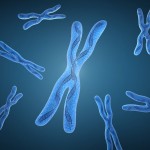 Gastric bypass surgery, a common weight loss procedure, has been shown to be effective in reversing type 2 diabetes in obese individuals. Now, a new study provides further explanation into how the procedure works to improve insulin sensitivity; researchers from the Karolinska Institute in Stockholm, Sweden found that weight loss following gastric bypass is associated with changes in gene methylation (a common epigenetic signaling tool that cells use to lock genes in the “off” position). The study’s senior author, Professor Juleen Zierath, explained that “in severely obese people, the levels of specific genes that control how fat is burned and stored in the body are changed to reflect poor metabolic health. But after gastric bypass surgery, the levels of these genes are restored to a healthy state, which mirrors weight loss and coincides with overall improvement in metabolism.”
Gastric bypass surgery, a common weight loss procedure, has been shown to be effective in reversing type 2 diabetes in obese individuals. Now, a new study provides further explanation into how the procedure works to improve insulin sensitivity; researchers from the Karolinska Institute in Stockholm, Sweden found that weight loss following gastric bypass is associated with changes in gene methylation (a common epigenetic signaling tool that cells use to lock genes in the “off” position). The study’s senior author, Professor Juleen Zierath, explained that “in severely obese people, the levels of specific genes that control how fat is burned and stored in the body are changed to reflect poor metabolic health. But after gastric bypass surgery, the levels of these genes are restored to a healthy state, which mirrors weight loss and coincides with overall improvement in metabolism.”
The researchers studied 14 obese patients before they underwent gastric bypass surgery and again 6 months later, and compared several genes with those of 16 normal-weight, glucose-tolerant women. They discovered that surgery-induced weight loss causes alterations in DNA modifications that control gene expression in response to the environment. Specifically, changes in methylation (or chemical markings), on two genes that control glucose and fat metabolism, called PGC-1alpha and PDK4, correlate with obesity but are reversed after weight loss. The findings suggest that the environment, such as food intake or weight loss, can affect gene expression through this mechanism. Although genes have a strong effect on many aspects of our health, there are ways we can take action to ‘fight back’ against negative gene expression and have the best chance at health.
Related Reading:
A recent study found that that gastric bypass surgery can reverse diabetes in moderately obese patients by uniquely restoring pancreatic function. Researchers said that gastric bypass seems to do so by targeting belly fat—where hormones that are toxic to the body develop–and changing the hormones in the gastrointestinal tract. You can read more about the study here.






Weight Loss Studies & Clinical